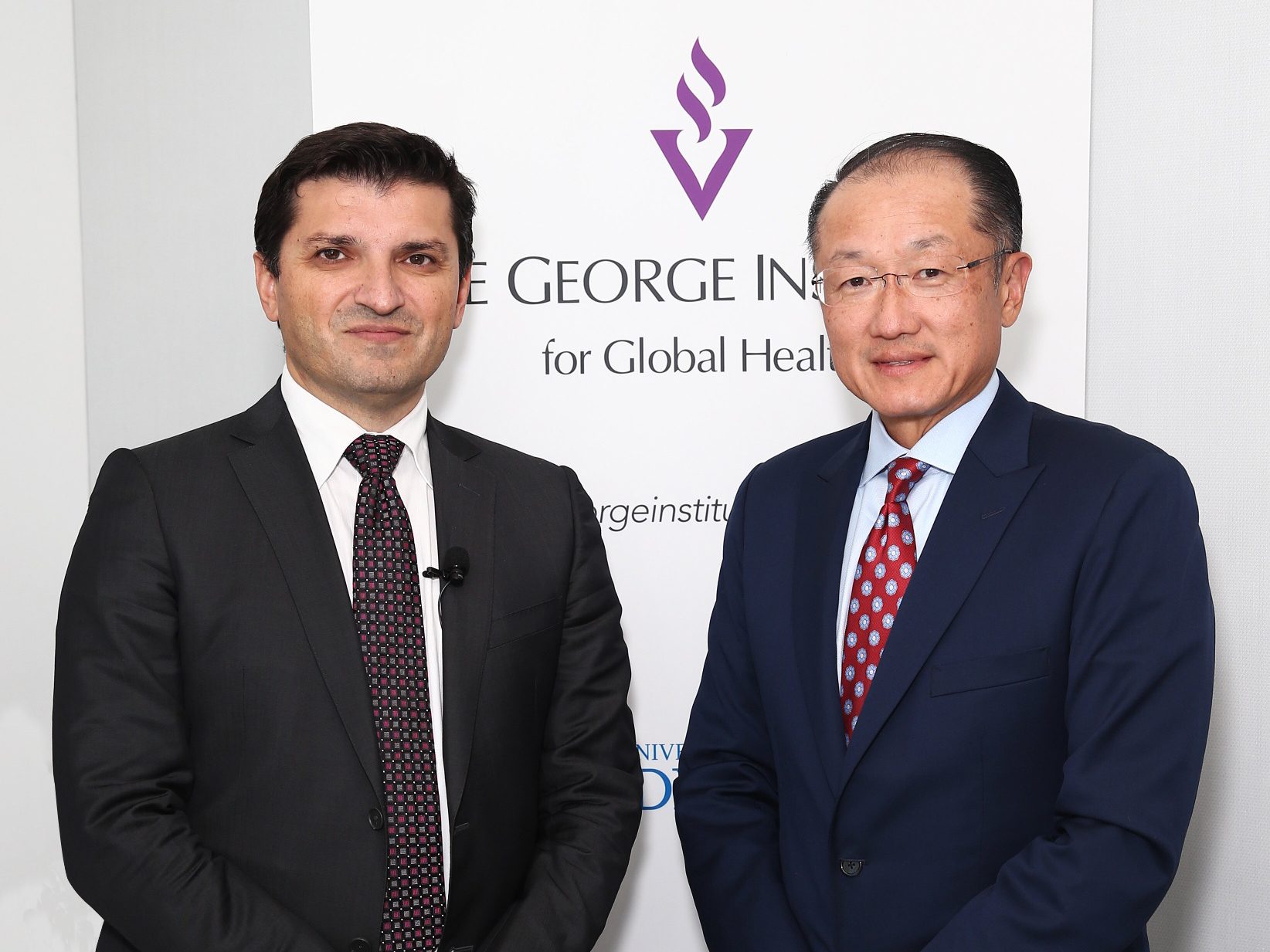
World Bank President highlights Ebola’s Economic Impact Ahead of G20 Meetings
The George Institute for Global Health Executive Director Vlado Perkovic, left, welcomes the President of the World Bank Group, Jim Yong Kim.The President of the World Bank Group, Jim Yong Kim today highlighted the economic impacts of the developing Ebola crisis in West Africa.
President Kim was speaking at an event hosted by The George Institute for Global Health in Sydney ahead of the G20 Finance Ministers and Central Bank Governors meeting in Cairns.
Kim addressed questions from the audience relating to global health and development issues as well as providing his latest assessment of the economic impacts of the Ebola crisis.
Kim said the number people of dying of Ebola doubles every three weeks.
According to an analysis conducted by the World Bank, the economic impacts of the outbreak could be catastrophic without immediate international intervention.
The World Bank estimated that if the slow containment scenario was continued, the economic impact could be in the billions for the worst affected countries.
However, the economic impact could be curbed if swift national and international responses succeed in containment, according to Kim.
Kim emphasised the importance of health care delivery systems in developed, emerging and low income countries.
“Clinical science has advanced, there is a lot more to do. But we have done almost nothing about actually figuring out how to build the systems that will actually work.
“We have not been taking seriously what I call the science of health care delivery. The delivery part is the real rocket science,” President Kim said.
Kim stated that further development of health care delivery was needed to curb health crises, and the Ebola virus is an example of how pandemics can be managed better.
Kim also highlighted the importance of medical research.
“It was really President Clinton in the 90’s that made a huge investment in NIH (National Institutes of Health).
“If you look at the investments into the National Institutes of Health in the United States and then look at what it led to in terms of jobs, economic growth, opportunity for scientists to then move their findings into industry and then really literally grow the economy it was one of the best investments we have ever made."
“I think that Australia is a country where if it did invest more in research could have a huge impact in the world and that investment could turn around especially in the medium to long term could have a very positive impact on economic growth in Australia.”
The George Institute Australia Executive Director Vlado Perkovic said: “As the first doctor in charge of the World Bank, Kim is uniquely placed to highlight the importance of health care delivery systems and the link between health care investment and economic growth.”
The George Institute’s mission is to improve health worldwide, with a focus on cost-effective healthcare delivery and disadvantaged populations.
The event was held at the Bloomberg Sydney offices.


